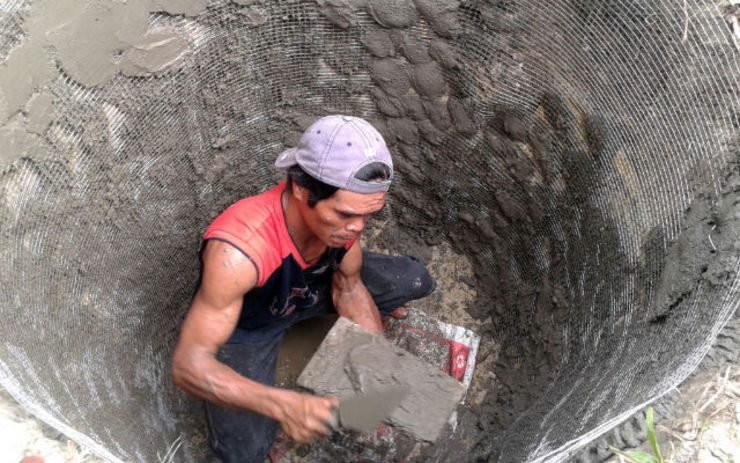SUMMARY
This is AI generated summarization, which may have errors. For context, always refer to the full article.

LEYTE, Philippines – At least 7 Yolanda-hit barangays across 3 municipalities around Ormoc City have been declared as first in the entire Leyte province to eradicate defecation in public – a practice known to cause contamination of water sources and diarrheal diseases.
The declaration came after an authorized government body, including hygiene specialists and international organizations, certified the remote barangays of Bulak, Masaba, and San Dionesio in Matag-ob town; Payao in Villaba town; and San Ignacio, Santa Domingo and Libertad in Kananga town as the first Zero Open Defecation (ZOD) barangays in the province of Leyte.
To achieve ZOD status, each household in a barangay should have access to toilet and water supply. The recognition was a big feat, given that 70% of people in these communities did not have access to toilets immediately after Super Typhoon Yolanda (Haiyan).
Western Leyte has areas with some of the highest rates of open defecation in the country even before Yolanda. In the immediate aftermath, the Water, Sanitation and Hygiene (WASH) cluster estimated that around 65% of areas in the region did not have access to toilets.
Save the Children has been providing remote and vulnerable areas, including the ZOD-certified barangays, with construction materials and trainings to build and repair toilets as part of its comprehensive Yolanda response. To date, Save the Children has provided construction materials for over 6,525 toilets in 32 barangays and plans to help build 3,475 more across 47 barangays in 2014.
“Save the Children knows that the practice of open defecation poses great health risks to the disaster-affected communities, especially children,” said Tom Howells, Save the Children’s Field Manager in Western Leyte Office.
He added: “By providing communities with toilets and clean water supply, especially those in remote and vulnerable areas, we can help protect children and adults from infectious diseases.”
Proper hygiene and sanitation
According to WHO, diarrheal disease is the second leading cause of death in children under 5 years old, and is responsible for killing around 760,000 children every year. WHO added that the disease can last several days, and eventually dehydrates the body. The disease is common particularly among children and the elderly.
Save the Children recognizes, however, that building toilets and repairing water lines alone may not fully address water and sanitation problems in Western Leyte. In response, the organization launched a province-wide campaign to educate people on the health risks of poor hygiene and sanitation. At the household level, Save the Children consulted with and fully involved communities and local officials in the design and construction of toilets and water facilities.
“It is not enough that we provide communities with construction materials. The communities that achieved ZOD were successful because they now see the importance of proper hygiene and sanitation. Without proper consultation with and full involvement of the community and the local government, these projects may not succeed in the long-term,” said Reggie Aquino, Save the Children’s Program Development and Quality Manager in Western Leyte Office.
Save the Children’s comprehensive response in the region includes providing communities with cash transfers, community grants for food, security and livelihoods and shelter assistance. The children’s organization is also undertaking repairs of schools, district health stations, provision of medicines and establishment of Child Friendly Spaces. – Rappler.com
Add a comment
How does this make you feel?
There are no comments yet. Add your comment to start the conversation.